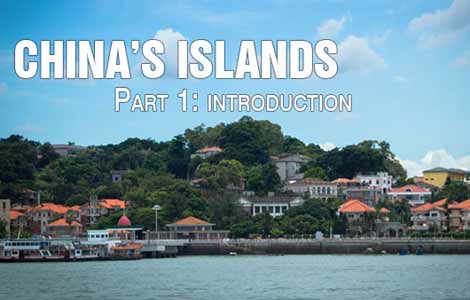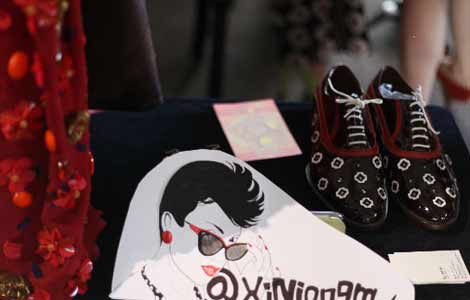Chinese Dream, African Dream: Achieving Common Development
Updated: 2013-08-28 15:47
By Ms. Asha-Rose Migiro (chinadaily.com.cn)
|
||||||||
Recently, the new Chinese administration under the distinguished leadership of President Xi Jinping unveiled "The Great Chinese Dream." Through this dream China affirms its "commitment to connecting its development with that of Africa, aligning the interests of the Chinese people with those of the African people, and combing China's development opportunities with those of Africa" stressed President Xi. It is in this regard that the Chinese dream has received immense appeal in Africa-it conjures a vision of collective achievement and resonates with the continent's dream.
We in Tanzania know that the Chinese dream espouses the same objectives that we are striving to reach-poverty alleviation, economic growth and attainment of sustainable development as articulated in the country's National Development Vision 2025. We have a workable tool. The successive Forums for China-Africa Cooperation (FOCAC), based on the principles of equality, mutual trust, win-win cooperation and two-way cultural exchanges, among others, stand to make a huge contribution to the practical realization of the Chinese dream, African dream.
The emergence of China as a global economic giant and Africa's largest trading partner has raised hopes that a win-win partnership could unleash the continent's economic potentials. China's growth trajectory and intensified Sino-Africa relationship offers several unprecedented opportunities for both sides. China has become an important export destination for Africa and its rising domestic consumption bodes well for the continent as it could sustain demand for African exports. Africa, on the other hand, stands to benefit significantly from the increased trade relations with China as a gateway to other Asian markets.
In recent years, the African continent has seen rising levels of Chinese foreign direct investment flowing to key sectors such as telecommunications, transport, port construction, power generation and agriculture. Given the scale of Africa's infrastructure gap, these investments present Africa with the much-needed impetus to rapid social and economic development. On the other hand, Sino-Africa partnership offers African countries an opportunity to draw a leaf from China's experience in the competitiveness of its industry and exports. There is a huge potential of using the current partnership arrangements to boost Africa's agricultural sector that remains the largest employer of its people.
On their part, Chinese investors can make use of the improved economic environment on the continent, which has thus far proved resilient to the global economic crisis. Investing in Africa means getting access to a consumer market of over a billion people with its fast-growing middle class.
One of the challenges is how to ensure Sino-Africa relationship is as equitable as it is sustainable in its long-term cumulative effect. In one of his landmark speeches, Mwalimu Julius Nyerere aptly said "If a door is shut, attempts should be made to open it; if it is ajar, it should be pushed until it is wide open. In neither case should the door be blown up at the expense of those inside" (from his stability and change in Africa speech given at the University of Toronto, Canada, 2 October 1969). Let us use the FOCAC mechanism to ensure that the door is not blown up!
Africa is much more than a scene of what has often been referred to as "destination for natural resource exploitation" for foreign investors. Africa is a land of strategic opportunities for those who are keenly interested in working with us to forge win-win partnerships. It is indeed strategic cooperation that will demystify the claim that the increased engagement of emerging economies (such as the BRICS) in Africa is essentially driven by the continent's abundant, untapped natural resources.
Recently produced data by the United Nations Conference on Trade and Development (UNCTAD) show that about 75 per cent of the value of the BRICS Foreign Direct Investment (FDI) projects in Africa for the period 2003 to 2012 were in manufacturing and services sectors. Only a meager 10 per cent and 26 per cent of the number and value of projects, respectively, were channeled to natural resources. It is also true that some of the African countries which are relatively least endowed with natural resources are the major beneficiaries of Chinese investments and trade relations.
The Sino-Africa partnership should work to ensure the investments that are made contribute effectively to the rapid transformation of African economies by, among others, overhauling and modernizing current production structures; directing technology and adequate resources to small and medium scale enterprises and forging strategic linkages with local African producers with a view to getting value-added, high quality products exported to China and other parts of the world.
China-Africa relations have come a long way. A lot has been achieved and a lot more remains to be gained through the Chinese dream, African dream. While Sino-Africa relations offer the continent avenues and opportunities to diversify its trading partners and forge new mutually beneficial partnerships, it is important that such benefits trickle down to the masses.
That said, universities in Africa are key players in a global system increasingly driven by knowledge exchange, information technology and new ideas. We, indeed, live in an historic epoch. As remarked by one astute scholar, "Universities nurture the hopes of the world: in solving challenges that cross borders; in unlocking and harnessing new knowledge; in building cultural and political understanding; and in modeling environments that promote dialogue and debate." Universities in Tanzania should therefore take their rightful position in enhancing Sino-Africa cooperation. Academic and cultural exchanges will be crucial in this regard.
While the University of Dar es Salaam, and I believe other universities on the continent already maintain academic exchanges with counterpart universities in China, efforts should be made to make sure that cooperation is not confined only to government levels but also penetrates further down to the people. President Xi Jinping during his visit to Tanzania in March this year (2013) rightly said that greater emphasis should be placed "on people-to-people and cultural exchanges between China and Africa so as to improve mutual understanding and perception…"
Mao once said: "Our duty is to hold ourselves responsible to the people. Every word, every act and every policy must conform to the people's interests, and if mistakes occur, they must be corrected-that is what being responsible to the people means."
On that note, therefore, whatever we do, discuss and plan within the spirit of achieving our cherished goal of creating and fostering a win-win cooperation framework, people's interests should be at the core.
The writer is the Former Deputy-Secretary General of the United Nations.

 New York Times, Twitter hacked by Syrian group
New York Times, Twitter hacked by Syrian group
 Five apps to help you 'breathe' in Beijing
Five apps to help you 'breathe' in Beijing
 Wozniacki survives battle with Chinese qualifier
Wozniacki survives battle with Chinese qualifier
 Moscow air show opens with flight demonstrations
Moscow air show opens with flight demonstrations
 US preparing for probable strike on Syria
US preparing for probable strike on Syria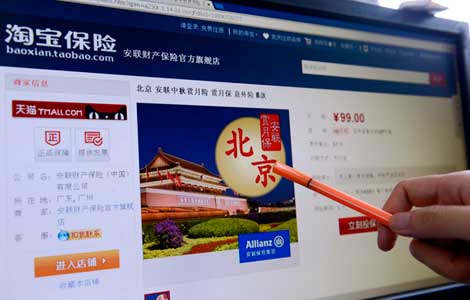
 Putting money on full moon
Putting money on full moon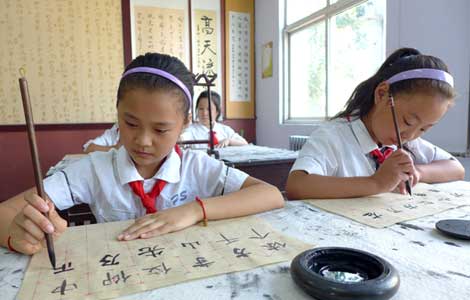
 Language list aims to pass on Chinese culture
Language list aims to pass on Chinese culture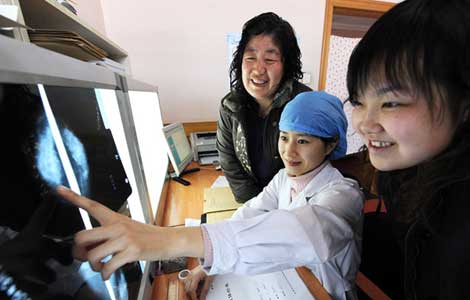
 Cancer patient delivers healthy baby
Cancer patient delivers healthy baby
Most Viewed
Editor's Picks

|

|

|

|

|

|
Today's Top News
Fonterra scare puts New Zealand under scrutiny
Foreign investment easier in Shanghai FTZ
US envoy to visit DPRK to secure prisoner's release
US 'must consider impact' of winding down QE
China gearing up for plenary session
Japan suspends rocket launch at last minute
Global expertise a scarce asset for employers
Sino-Japanese meeting at G20 ruled out
US Weekly

|

|
